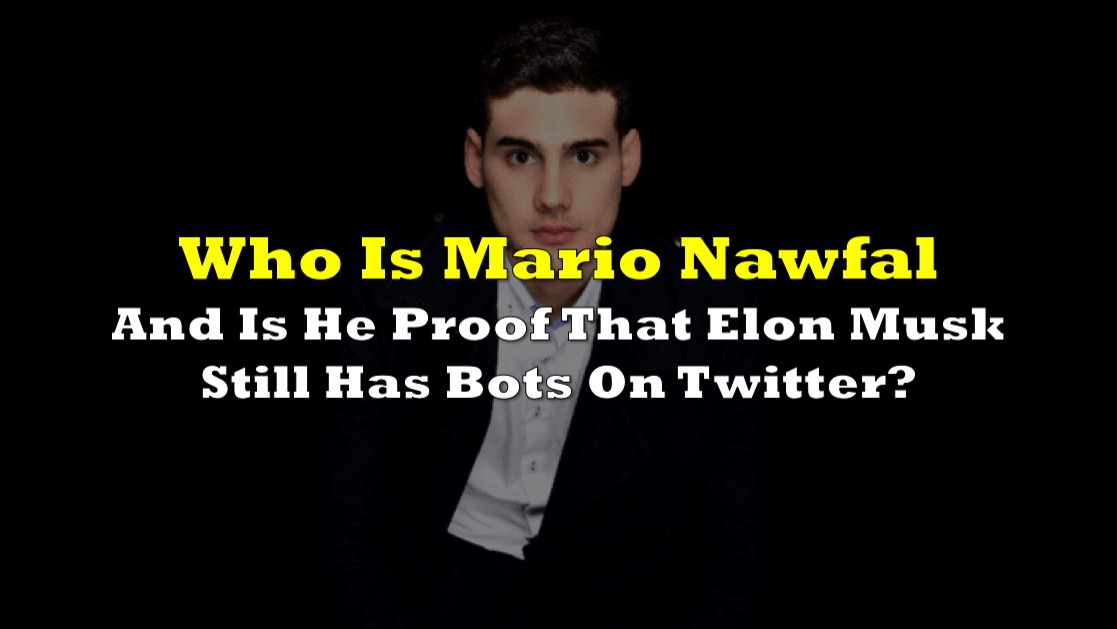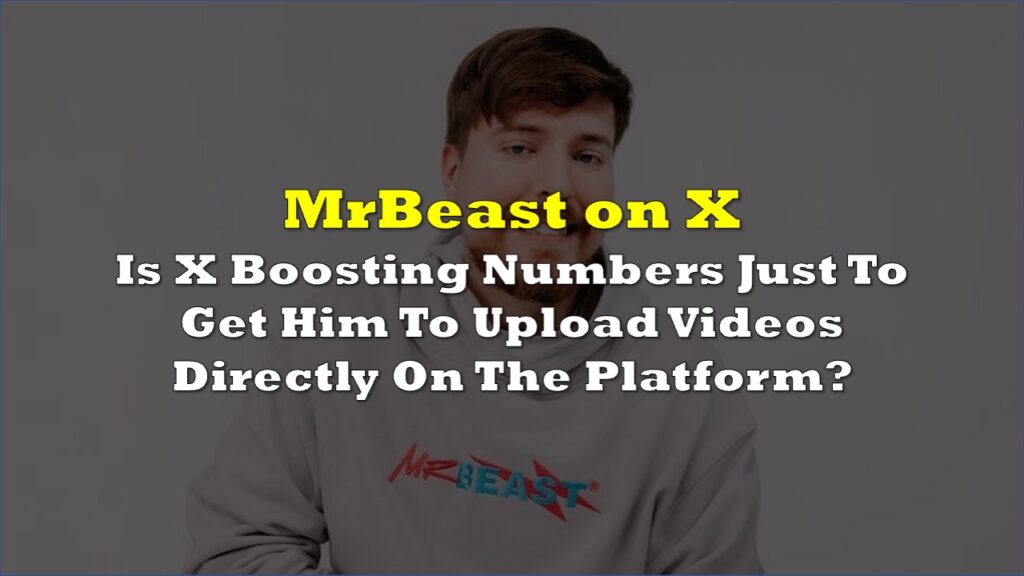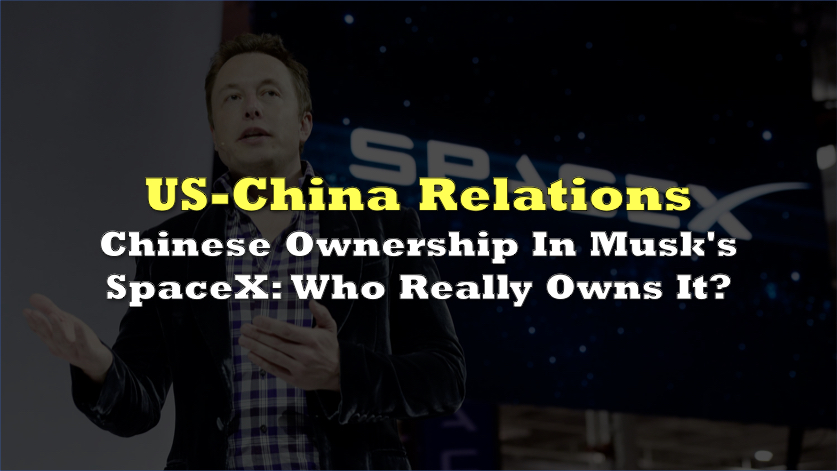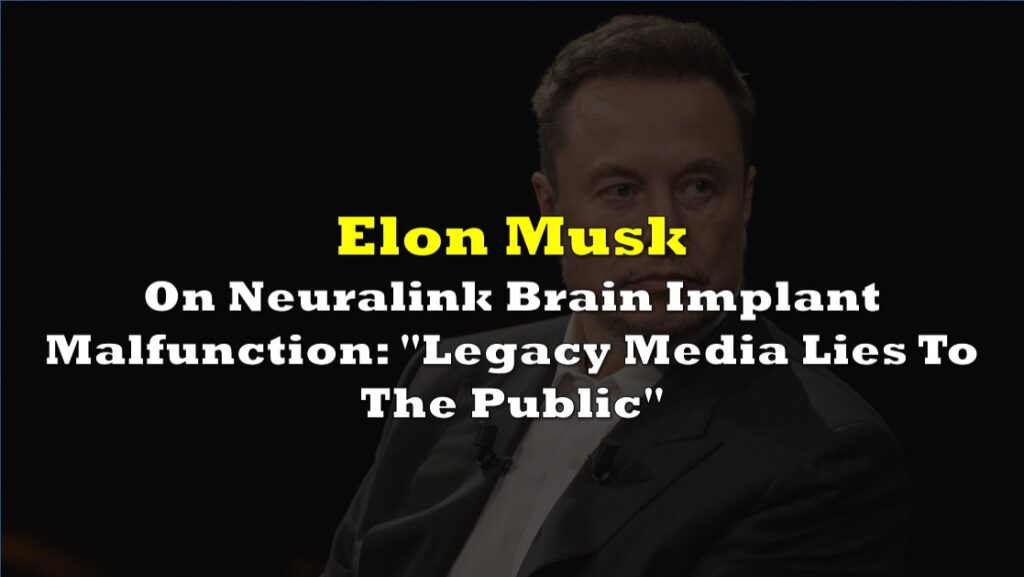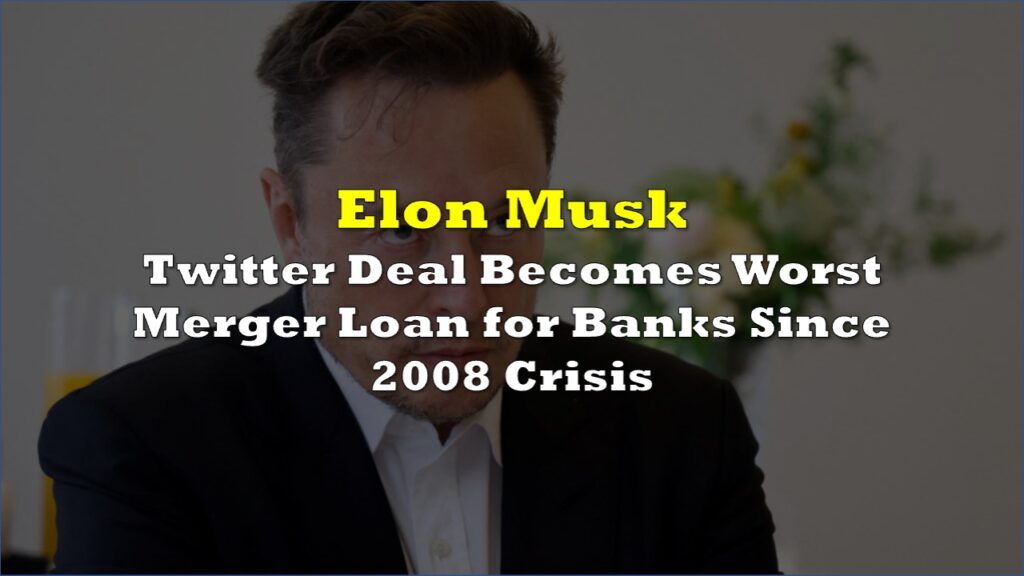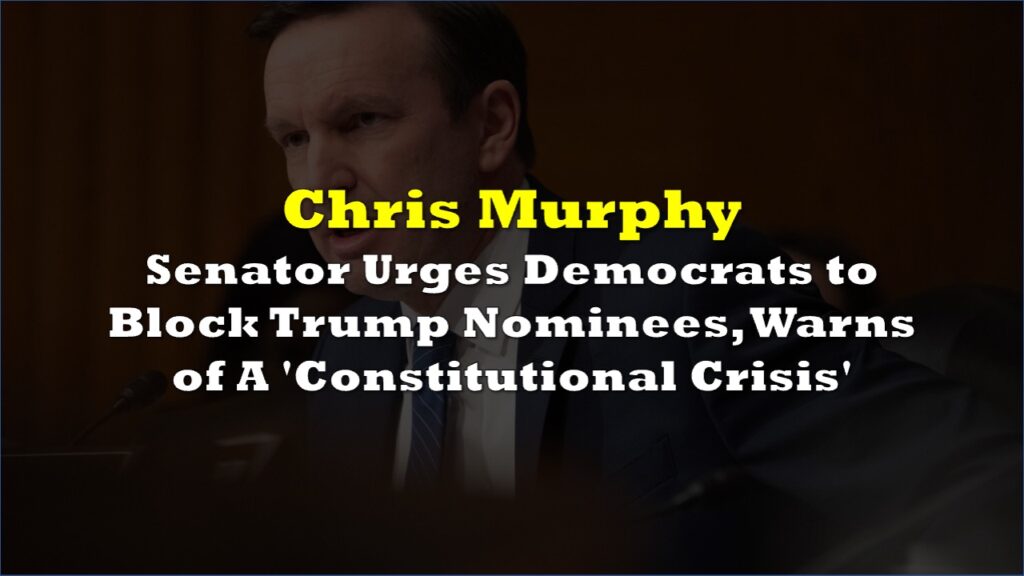Mario Nawfal’s Roundtable, a popular Twitter Space, has gained immense popularity among US listeners for featuring celebrities and Fortune 500 executives. Additionally, Nawfal has recently launched a second Twitter Space called Crypto Town Hall, which focuses on breaking news topics with broad appeal and offers sponsorships and interviews for hire.
However, Nawfal’s success has come under scrutiny due to a suspiciously high number of international Twitter users joining his Spaces consistently. Moreover, his average daily number of listeners raises questions, leading to allegations that he may be paying for fake Twitter engagement.
How does a twitter account gain 400k followers in just a few days @MarioNawfal? pic.twitter.com/WjfbrqIeow
— GuruLeaks (@Guruleaks1) June 25, 2023
Upper Echelon investigation
Investigations conducted by online sleuth Upper Echelon have uncovered several questionable business dealings involving the 29-year-old entrepreneur. These include a public company that experienced a significant loss in value and a loan scheme where Nawfal failed to return lenders’ principal, despite guaranteeing payment. Upper Echelon has also accused Nawfal of reneging on guarantees made to lenders.
Nawfal’s Twitter Spaces operation appears to be primarily geared towards promoting cryptocurrencies. In the past, he has claimed to charge over $20,000 per crypto sponsorship on his Roundtable or Crypto Town Hall shows.
Additionally, Nawfal has been using his Twitter Spaces to encourage startups to join his incubator, International Blockchain Consulting (IBC) group. However, investigations by Upper Echelon have revealed that IBC, instead of investing in companies like a typical startup incubator, charged them for various services, including marketing and social media management. Although IBC claimed to sell these services at cost, it was found that the prices were significantly marked up. Nawfal himself admitted to collecting $2 million from a crypto client without providing commensurate services.
According to Upper Echelon’s findings, IBC frequently engaged in practices such as bot engagement, purchasing fake followers, utilizing SMM panels, forum spamming, and posting repetitive Twitter comments for promotional purposes.
In a troubling revelation, IBC was found to be invoicing Nawfal’s public company, NFT Tech, for services at inflated prices. During the investigation, Upper Echelon was unable to confirm if certain services listed on the invoices were actually provided, and some NFT Tech employees resisted paying questionable invoices. Notably, one invoice item mentioned “Promoting the Roundtable,” referring to Nawfal’s Twitter Space.
Between June 1, 2022 (the date of the last visible IBC invoice), and June 7, 2022, when NFT Tech announced a new CEO, investors ousted Nawfal from his position as CEO and compelled him to relinquish ownership of 666,667 restricted share units.
Nawfal has a history of threatening to sue when confronted with evidence of his dubious business practices. In response, Upper Echelon threatened to countersue and filed an ethics complaint against Nawfal’s attorney with the California bar. Eventually, Nawfal relented.
Nawfal vs. his former CMO
Related to this, Frank Heijdenrijk, who claims to be Nawfal’s former CMO, also exposed that Nawfal has “a history of scamming people for millions of dollars.” Heijdenrijk shared his agreement with IBC as a former executive in the firm.
Also, in case none of this is true, Mario (which, of course we both know it is), I am sure you'd have no issue publicly talking to me about all of this (after you unblock me of course). Or any of the other people you scammed. Cause then you'd have evidence on why it's not true
— Frank Heijdenrijk (@FHeijdenrijk) June 24, 2023
In one of his tweets, Heijdenrijk shared that Nawfal started employing fake account engagement on Twitter back in September 2022. He showed a screenshot “of a report by the ‘engagement provider’ where engagement was seeded (by fake accounts) vs. organic (so real engagement).”
Mario started botting in Sept 2022, here's a screenshot of a report by the 'engagement provider' where engagement was seeded (by fake accounts) vs. organic (so real engagement) with a total of 291 tweets being boosted + average of 469 seeded accounts used per post pic.twitter.com/C7m2FyIMwL
— Frank Heijdenrijk (@FHeijdenrijk) June 24, 2023
Mario Nawfal sounds pretty confident for a dude whose ex CMO is currently roasting him for being a scammer on Twitter 😬 pic.twitter.com/wR6M4qpDNS
— HashBastards (@HashBastardsNFT) June 25, 2023
Later on, the former CMO said that Nawfal claims that he extorted the Twitter Spaces host but he can’t defend himself as he is still blocked by his Twitter account.
“Either debate me or fight me in a cage like Musk vs. Zuck – we can do the pre-fight before their fight,” said Heijdenrijk.
Mario Nawfal now claims that I've extorted him
— Frank Heijdenrijk (@FHeijdenrijk) June 25, 2023
But he still blocks me so I can't defend myself
Anyway, it's not extortion when I'm asking for my own money, Mario
Either debate me or fight me in a cage like Musk vs. Zuck – we can do the pre-fight before their fight https://t.co/kk00SMZeQW
Another alleged former employee of Nawfal, Chet Long, claimed that the Twitter Spaces host “literally caused emotional harm to [his] family… and has spread an intense amount of division and falsehoods via mass botting on the platform for his own gain.”
“Enough is enough. @elonmusk I’m certain you are sincere in your desire to stop platform manipulation,” Long tweeted.
Couldn’t agree more. He’s literally caused emotional harm to my family (more to come on this and more soon), and has spread an intense amount of division and falsehoods via mass botting on the platform for his own gain.
— Chet Long (@RealChetBLong) June 25, 2023
Enough is enough. @elonmusk I’m certain you are sincere in…
The Musk connection
It is worth noting that one of the main contentions by Elon Musk before buying out Twitter is the accuracy of the platform’s engagement numbers, particularly its approximation of fake accounts or bots. It nearly caused Musk to renege on the deal since Twitter, then-led by former CEO Parag Agrawal, couldn’t seem to satiate Musk’s inquiry on bot activity in the platform.
According to an SEC filing last year, Musk said Twitter is “actively resisting and thwarting his information rights” by not revealing the actual proportion of fake bots infiltrating the social media platform. The letter claimed it’s a “clear material breach” of the $44 billion merger agreement, and as a result Musk “reserves all rights resulting therefrom, including his right not to consummate the transaction and his right to terminate the merger agreement.”
Musk then threatened to pause his pending acquisition of Twitter until the company proves that bot accounts make up less than 5% of all user accounts; some analysts, though, attested the move to a negotiating ploy to reduce the $44 billion buyout price tag.
It has long been Musk’s promise to rid the platform of fake accounts and platform engagement; else, he will “die trying.”
If our twitter bid succeeds, we will defeat the spam bots or die trying!
— Elon Musk (@elonmusk) April 21, 2022
Given this, many observers are questioning Musk’s recent actions in promoting Nawfal, even calling the latter’s coverage on updates regarding the Ukraine-Russia war the “best coverage” he’s seen.
The coverage of Mario Nawfal (which isn't even his real name) is nothing more than sensational and speculative. Yet, @elonmusk has garnered this crypto scam account over 100k new followers in the past two hours by praising him.
— Dr. Simon Goddek (@goddeketal) June 24, 2023
What is Elon's agenda here? Highly concerning. https://t.co/V5QvSRt15m
In addition, a certain screenshot of Nawfal’s private messages to Musk revealing the former’s request to speak to anyone on Twitter regarding “support… to scale the show.”
The information is coming in Hot @MarioNawfal would love for you to come in and hear your side of these accusations pic.twitter.com/K50Pw40ORm
— Joe (@ljbklyn129) June 25, 2023
While it is not certain that Musk had a hand in the sudden jump on Nawfal’s following or engagement, the mere presence of it happening raised some doubts on the actual extent of bot activity on the platform post-Musk.
BitClout
Describing himself as a ‘serial entrepreneur,’ Nawfal co-founded NFT Tech, a company that went public on the NEO exchange. However, the company’s shares, which were trading at $0.70 when Nawfal was in charge, have since plummeted by 85%.
Prior to his involvement with NFT Tech and IBC, Nawfal was prominent on a social media platform called BitClout (now Decentralized Social). The platform misrepresented the likenesses of celebrities as BitClout users without their consent. Its founder, Nader Al-Naji, issued CLOUT (now DESO) tokens through a bonding curve to benefit insiders. Despite rebranding due to its negative reputation, the token’s value has dropped by 95% from its all-time high.
Nawfal accumulated significant holdings in BitClout through his promotion of BitClout/DeSo tokens, which he later converted into an initial dex offering (IDO) known as the DESO IDO fund.
An obtained document suggests that the IDO was likely a loan agreement between IBC and Nawfal, in which IBC would retain 80% of its crypto profits and distribute only 20%. The agreement stated that IBC would not pay any interest for the first three months or after the termination of the agreement.
Nawfal and his partner created a ‘Family and Friends’ investment pool using this loan agreement to purchase tokens in IDOs. However, many of the tokens invested in by the family and friends pool suffered significant losses, resulting in a total loss of $150,000. Consequently, repaying all investors became challenging.
A separate portion of the IDO fund allowed smaller investors to contribute as little as $1,000. However, most of these investors never received their money back, leading them to consider it a rug pull. Nawfal and his partner frequently ignored the Telegram group associated with these investors for extended periods.
It is important to note that the current status of the aforementioned funds, including whether Nawfal provided satisfactory relief or repayment to participants, remains unverified as Protos has not confirmed this information since Upper Echelon’s investigation concluded five months ago.
Despite Nawfal’s questionable business history, which is unknown to the majority of his Twitter Spaces listeners, he continues to downplay the allegations during his events, asserting that he has no hidden skeletons to be concerned about.
In progress. It’s one thing spreading facts to cancel someone, I have thick skin, but spreading lies is a red line.
— Mario Nawfal (@MarioNawfal) June 25, 2023
Information for this briefing was found via Protos and the sources mentioned. The author has no securities or affiliations related to this organization. Not a recommendation to buy or sell. Always do additional research and consult a professional before purchasing a security. The author holds no licenses.

